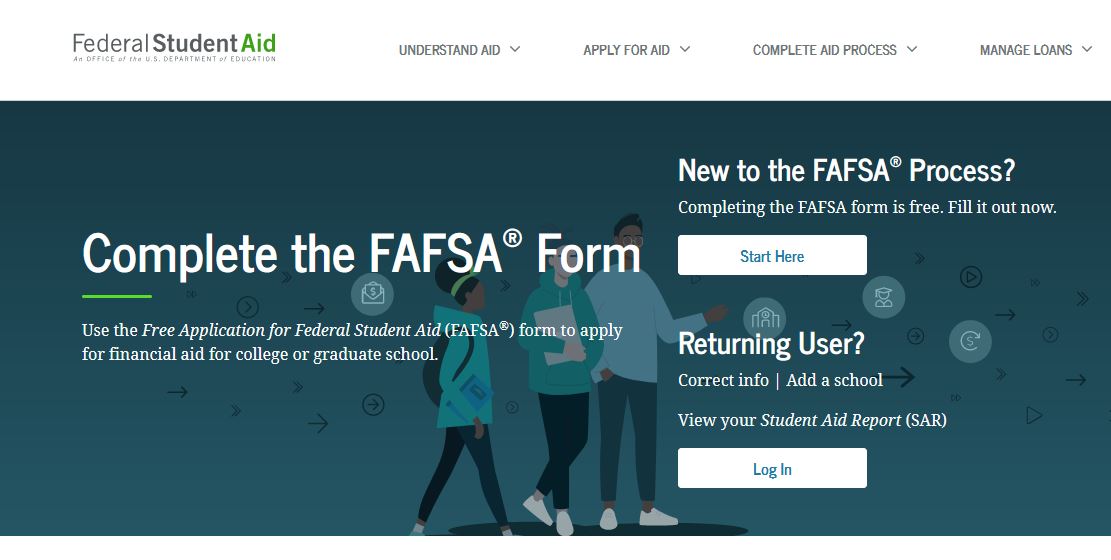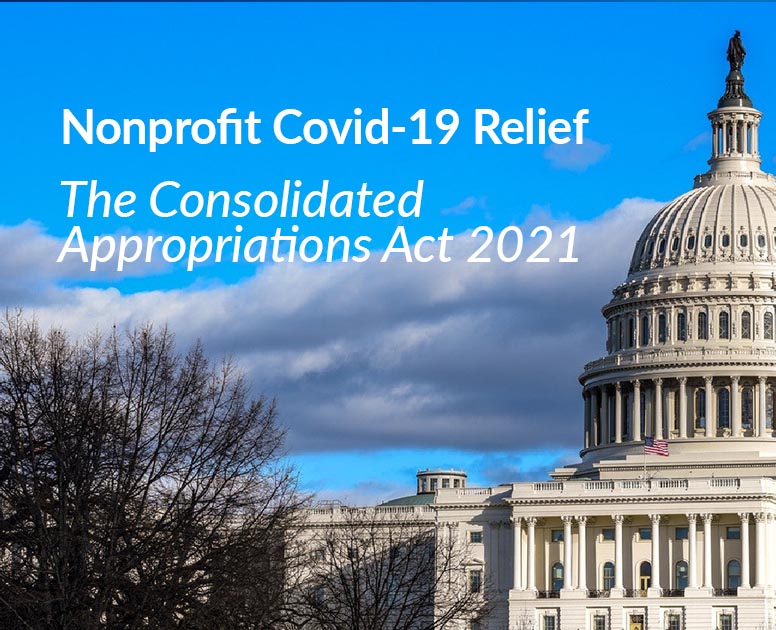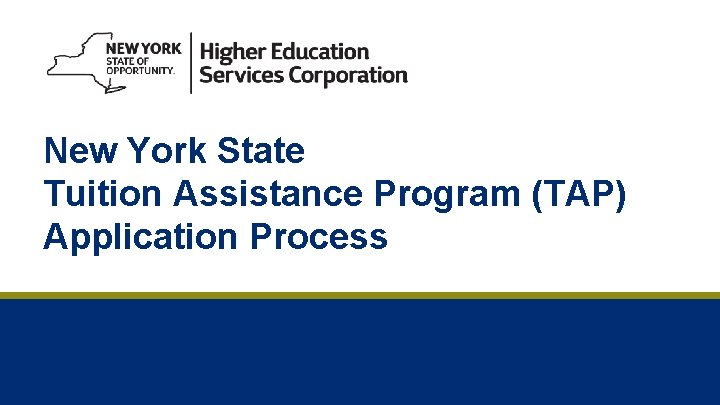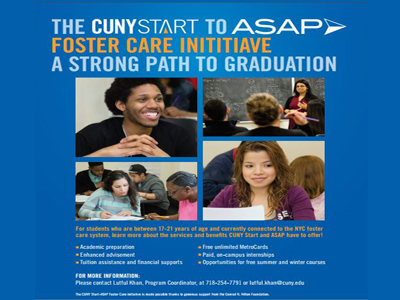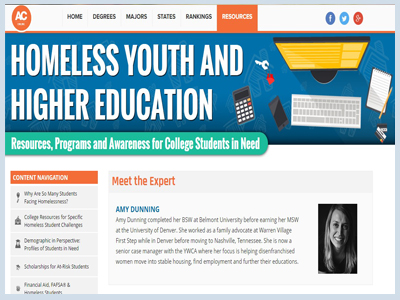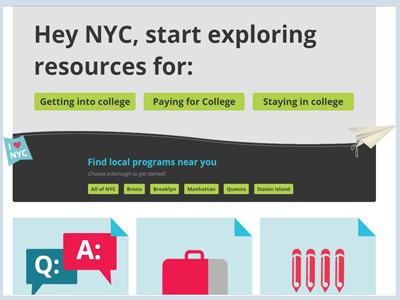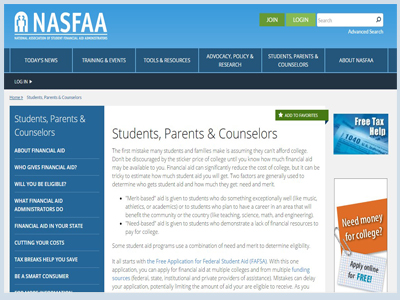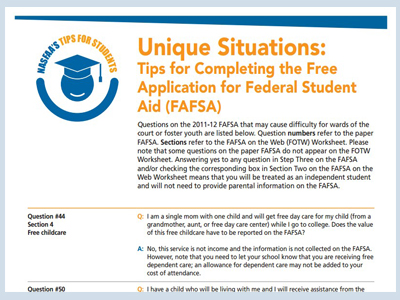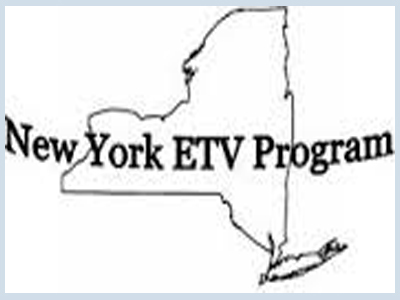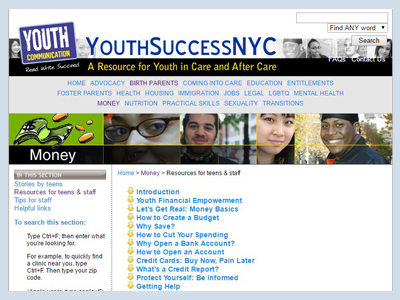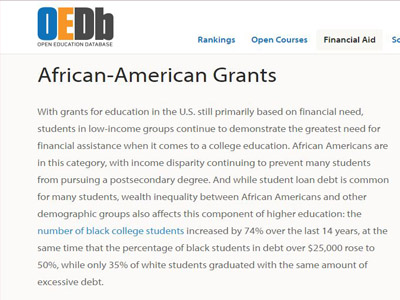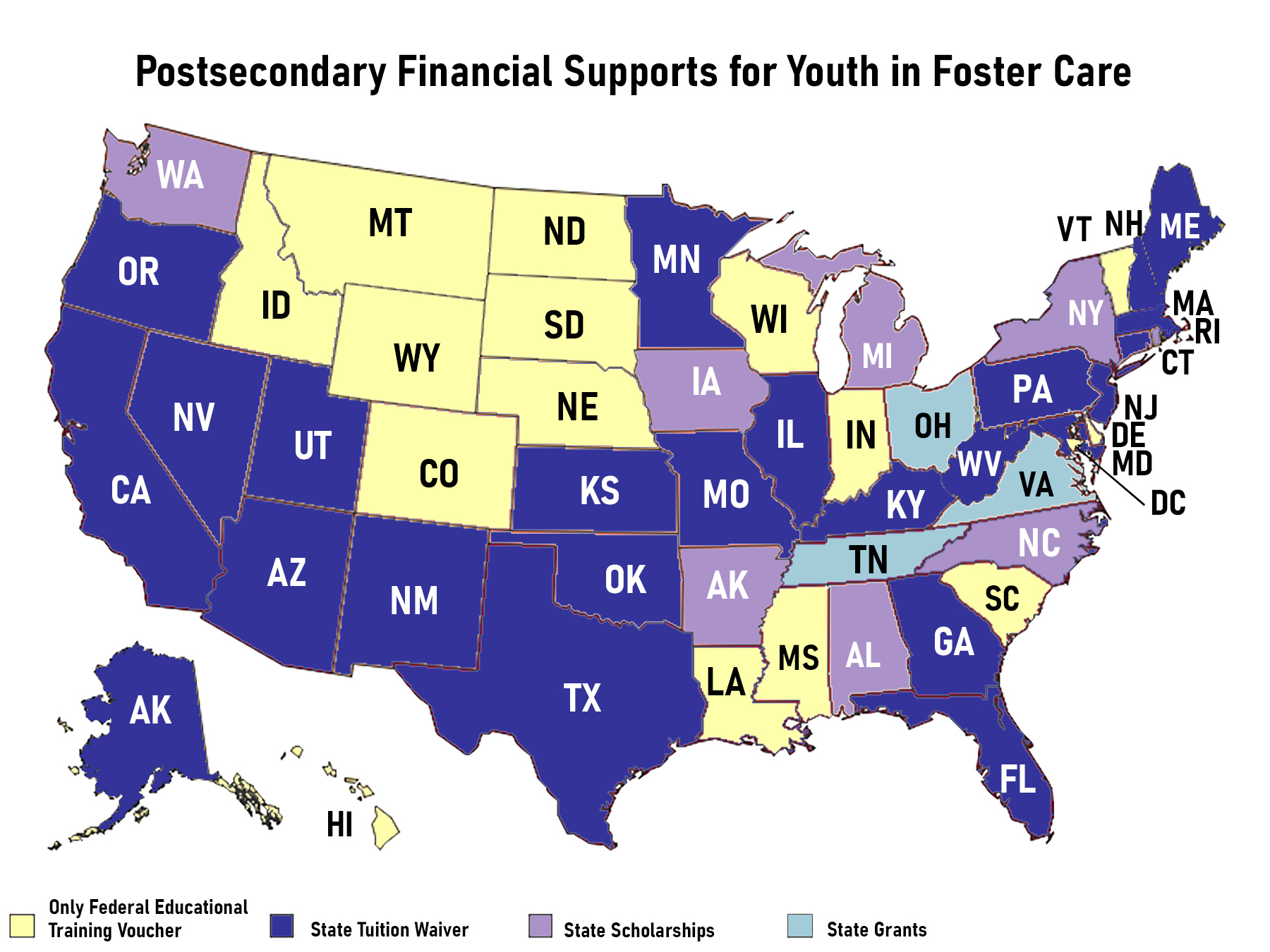Preparing For College
Parents who adopt older children from foster care often do not have as many years to save for the child’s college education. Foster youth often age out of the system right when they need to begin preparing and applying for college. And even those who have adopted children from a young age can find the process of applying for financial aid to be daunting. The good news is that there are programs in place that may help young adults and their families pay for education.
While there are many resources and guides created to assist parents in the overall general process, the Adoptive and Foster Family Coalition of New York has put together a guide of issues and items specific to those affected by Child Welfare.
The information and resources in this section will provide overall guidance.
Don’t miss the updated Scholarships for Adoptees and Foster Youth page as well.
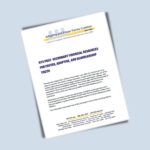 ACCESS THE ENTIRE NYS Post-Secondary Financial Resources for Foster, Adoptive, and Guardianship Youth GUIDE!
ACCESS THE ENTIRE NYS Post-Secondary Financial Resources for Foster, Adoptive, and Guardianship Youth GUIDE!
While there are many resources and guides created to assist parents in the overall general process, the Adoptive and Foster Family Coalition of New York has additional information, guides geared specifically towards those youths who are adopted, spent time in foster care or come from a kinship family background.
Specific FAFSA Assistance for Those Adopted or Spent Time in Foster Care
FAFSA:
The most vital step in applying for federal grants, work-study, and loans for college is the Free Application for Federal Student Aid (FAFSA®) form. Use the Free Application for Federal Student Aid (FAFSA®) form to apply for financial aid for college or graduate school.
- Submit the Free Application for Federal Student Aid (FAFSA) as early as possible!
- Note: State deadlines and requirements vary!
- If you are including parental financial information, make sure to have all necessary documentation at the ready. Students should also be prepared with their tax information. FAFSA made it easier to submit this information with the IRS DRT (Data Retrieval Tool). The IRS DRT expedites this process and lessens the chances of making a user error. The online FAFSA form will prompt this option or input financial information manually.
Read Carefully: Answering the questions in Step 3 (Student) will help determine if you will be required to provide parental information. If you answer “Yes” to any of these questions, skip Step 4 (Parent) and move on to Step 5 (Student). If you were adopted, previously or currently in foster care, or are currently living in a guardianship arrangement with someone other than your parent or stepparent, pay close attention to questions 52-54. See below:
QUESTION 52. At any time since you turned 13, were both of your parents deceased, were you in foster care or were you a dependent or ward of the court?
Note: Wards of the court are considered independent and are NOT expected to provide any parental (or legal guardian) financial information on the FAFSA.
- Youth adopted from foster care at 13+ years old are considered independent on the FAFSA; this simply means they will NOT include their parent(s) financial information. Making them more likely to qualify for financial aid.
- Review Step 3 (Student) on the FAFSA if you believe you should be exempt from providing parental information.
- Not all former foster youth are eligible for independent status:
- Ex: Youth adopted before their 13th birthday would NOT be considered independent. They would be required to include their parent(s) financial information. **Unless they answered “Yes” to another question in Step 3 (Student)).
QUESTION 53. As determined by a court in your state of legal residence, are you or were you an emancipated minor?
Note: An emancipated minor is someone who has been legally deemed an adult by a court in their state of residence. If you are an emancipated minor, you are considered an independent student and will NOT provide information about your parents on the FAFSA.
QUESTION 54. Does someone other than your parent or stepparent have legal guardianship of you, as determined by a court in your state of legal residence?
Note: If you live with a legal guardian, as determined by a court, you are NOT expected to provide any parental (or legal guardian) financial information on the FAFSA. You can file for Dependency Override, which communicates to your school’s Financial Aid office the reasons why you did NOT include any parental financial information on your FAFSA.
FREQUENTLY ASKED QUESTIONS:
What is my financial aid package and why is it important?
- A financial aid package is the combination of all grants and scholarships you receive, along with all loans you are offered. The total amount is based on your school’s Cost of Attendance (COA) and your Estimated Family Contribution (EFC). Review your financial aid package carefully. If you have questions, visit your financial aid office.
What is included in the Cost of Attendance (COA)?
- Cost of Attendance (COA) is the total estimated cost of attending your college, including tuition, room and board, fees, and books and supplies.
Additional Resources and Information for those Collage Bound
While there are many guides and publications gear towards the overall college experience and preparation, below you will find information and resources specific to those who have been adopted, spent time in foster care or come from a kinship situation. Information is specific to New York state when ever possible.
FAFSA® Application | Federal Student Aid
The most vital step in applying for federal grants, work-study, and loans for college is the Free Application for Federal Student Aid (FAFSA®) form. Use the Free Application for Federal Student Aid (FAFSA®) form to apply for financial aid for college or graduate school. If you were adopted, previously or currently in foster care, or are currently living in a guardianship arrangement with someone other than your parent or stepparent, pay close attention to questions 52-54.
Consolidated Appropriations Act
The Federal Government announced funding to support foster youth through the pandemic by supplementing the John H. Chafee program and the Education Training Voucher program. In addition, flexibilities were announced to allow 21-year-old to voluntarily remain or re-enter foster care.
Tuition Assistance Program (TAP)
“TAP, New York's largest grant program, helps eligible New York residents attending in-state post-secondary institutions pay for tuition. TAP grants are based on the both [...]
Federal Student Aid; Dependency Overrides
Dependency Overrides are granted on case-by-case basis dependent on unusual circumstances. This can make a student eligible for more financial aid, since the student is not required to list parent income and asset information.
Step by Step: College Awareness and Planning for Families, Counselors and Communities
Step by Step: College Awareness and Planning for Families, Counselors and Communities supports students and families as they begin to explore and consider postsecondary options.
CUNY Start-ASAP Foster Care Initiative
Through a grant from the Conrad N. Hilton Foundation, youth in foster care who are part of the CUNY Start-ASAP Initiative are eligible for enhanced services and financial support including CUNY application fee waiver, tuition assistance, and other financial supports.
Resources, Programs and Awareness for College Students in Need
Unaccompanied homeless youth (UHY), individuals who do not have “fixed, regular and adequate” housing and who are “not in the physical custody of a parent or adult.” have aspirations to attend college, yet lack the support and awareness of resources needed to move their dreams into reality.
New York City College Line
NYC College Line will help you stay organized from exploration to graduation. The site was created by Graduate NYC!, CUNY, NYC DOE, and Goddard Riverside.
NASFAA The National Association of Student Financial Aid Admistrators
Help with the Free Application for Federal Student Aid (FAFSA) to apply for financial aid at multiple colleges and from multiple funding sources (federal, state, institutional and private providers of assistance).
Unique Situations: Tips for Completing the Free Application for Federal Student Aid (FAFSA)
Help complete your Application for Federal Student Aid with answers to questions on the FAFSA that may cause difficulty for wards of the court or foster youth.
The Education and Training Voucher Program in New York
The New York Education and Training Voucher Program is a federally-funded, state-administered program designed to help youth who were in U.S. foster care
A Parent’s Guide to College
The guide addresses all aspects of college preparation from making the most of high school to financing your child’s education. Make use of this guide to examine your student’s educational options.
Young Adults Leaving Home
One of the chief emotional issues adoptees face throughout their lives is learning how to cope effectively with the feelings that are associated with separation and loss. Leaving home is the ultimate separation, and not only has its own complicated challenges, but can trigger all of the feelings the adoptee may have about their own separation from the birth family and subsequent separations from foster families.
Youth Success NYC – A Resource for Youth in Care and After Care
In the foster care system in New York, everyone ages out at 21, whether he or she likes it or not. No more nursing from the system, no more free room and board, and no more depending on others to make your life easier! It’s time to spread your wings and leave the nest. Time to go out and earn yourself a decent living."
OEDb; College Scholarship and Grant Database
Search through Open Education Database's (OEDb) directory of scholarships for financial aid opportunities. Included are: General Grants Federal Grants Education Level-Based Grants Community College Grant [...]
College Cost Reduction and Access Act
The “Fostering Adoption to Further Student Achievement Act” ( 2007) amendment, which changes the federal definition of “independent student” to include foster care youth adopted after age 13; and bases students’ financial aid eligibility solely on their ability to pay, regardless of adoptive parents’ income.
Disclaimer: Inclusion of these scholarships and programs does not constitute an endorsement of views expressed on the individual sites.

